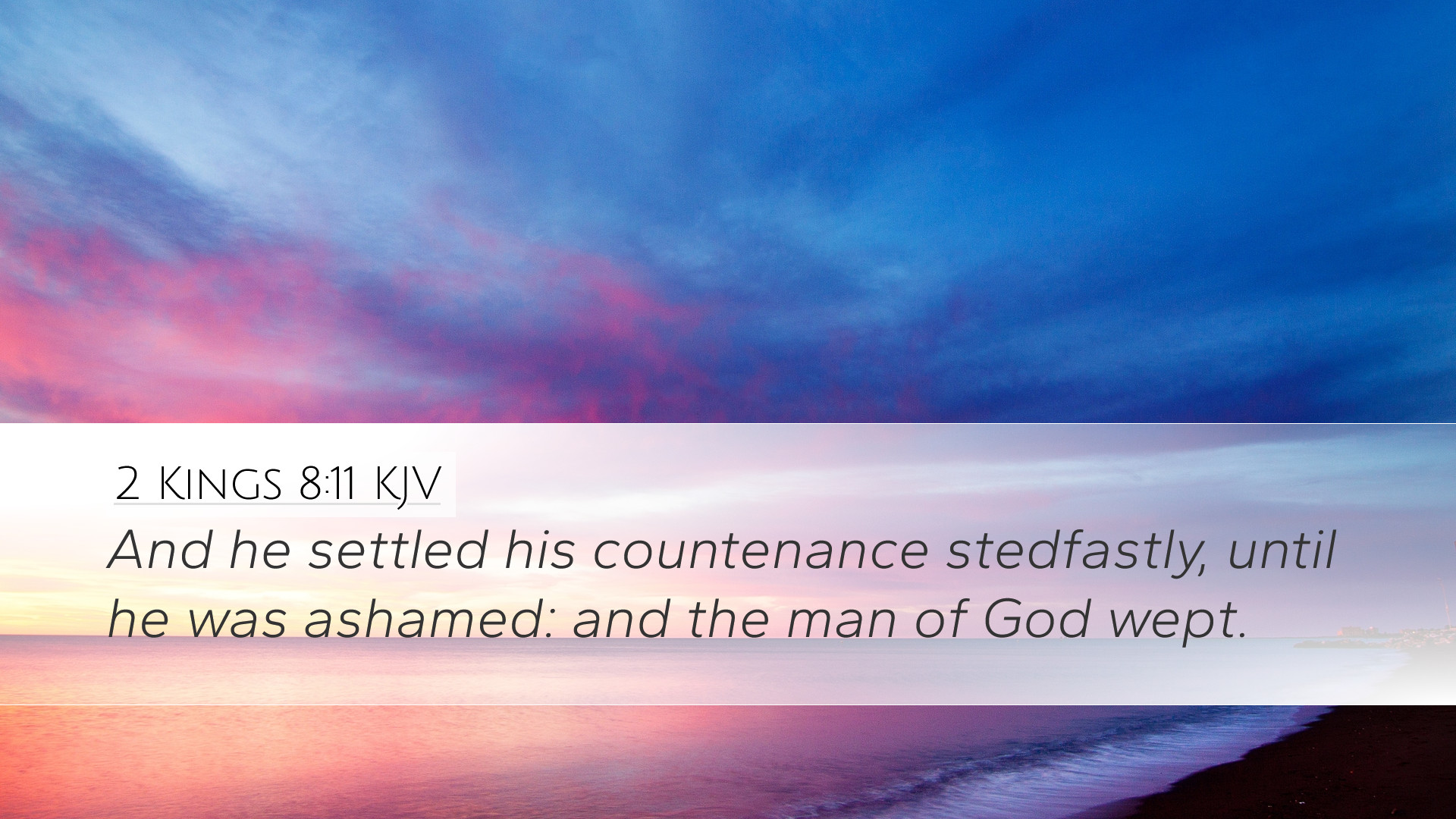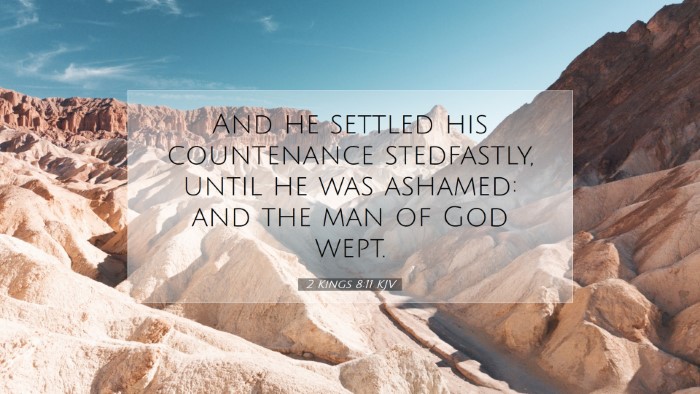Commentary on 2 Kings 8:11
Bible Verse: "And he settled his gaze steadfastly upon him until he was ashamed: and the man of God wept."
Introduction
2 Kings 8:11 presents a profound moment in the narrative of the prophet Elisha and the surrounding events of his ministry. This verse captures the intense emotion of the prophet, intertwining themes of prophetic insight, human vulnerability, and divine purpose. The commentaries by Matthew Henry, Albert Barnes, and Adam Clarke provide a rich tapestry of insights that illuminate the significance of these words.
Contextual Background
The historical backdrop of 2 Kings involves Elisha as a central figure in the prophetic tradition of Israel following Elijah. Following the miraculous events and the tensions of the Israelite monarchy, Elisha is confronted by Hazael, who approaches him as a servant to his master, Benhadad, the king of Aram. The prophetic insights he receives have both immediate and long-lasting implications for the Israelite people and their relationship with the surrounding nations.
Analysis of the Verse
The Gaze of Elisha
Elisha's steadfast gaze indicates a deep spiritual perception, going beyond mere human observation. According to Matthew Henry, Elisha was not only looking at Hazael but was gazing into the future that God revealed to him. This serves as a reminder to leaders and believers today that true insight often requires stillness and contemplation in the presence of God.
Shame and Emotional Response
The shame that Hazael experiences in the gaze of Elisha can be understood as the weight of divine revelation pressing upon him. Albert Barnes notes that this shame may relate to his future actions, which are riddled with violence. The prophet seeing Hazael's destiny brings forth tears—a manifestation of sorrow not just for Hazael's choices but for the tragic fate awaiting Israel. In pastoral contexts, this highlights the emotional burden leaders bear when they discern the path of those around them.
The Weeping Prophet
The emotional display of Elisha weeping over Hazael is pivotal. Adam Clarke states that this was indicative of the compassion of God towards sinners who eschew righteousness. Elisha’s tears symbolize not only personal loss and grief but illustrate the depth of God’s compassion for His people. Pastors and theologians can draw from this well of emotion to remind congregants about the sensitivities of prophetic insight.
Theological Implications
- Prophetic Insight: This verse serves as a stark reminder of the responsibility that comes with spiritual insight. Leaders are called to discern not only their own path but the trajectory of those they lead.
- The Nature of God’s Grief: Elisha's tears illustrate God's heart towards humanity—one of sorrow when faced with rebellion and choices leading to destruction.
- Human Agency: Hazael’s reaction is a prompt for our understanding of free will juxtaposed with divine sovereignty—how much of our future is determined by our choices under God's authority.
Practical Applications
For pastors and students of the Word, the verse invites several applications:
- Emotional Intelligence in Leadership: Leaders should cultivate an ability to empathize deeply with those they lead, reflecting the heart of God for His people.
- Encouragement in Prophetic Ministry: Those in prophetic ministry can take courage from Elisha's example, knowing that tears can be a powerful witness to the weight of eternal truths.
- Awareness of Consequences: This passage serves as a clear guideline for personal responsibility—may we always consider our actions and their impacts on our future and community.
Conclusion
The profound encounter between Elisha and Hazael in 2 Kings 8:11 serves as a pivotal moment that encapsulates the emotional, spiritual, and moral complexities inherent in prophetic ministry. As we reflect on this passage, may we be challenged to embrace our roles as both hearers and doers of God's Word, recognizing the weight of our choices within the grand narrative of divine providence.


